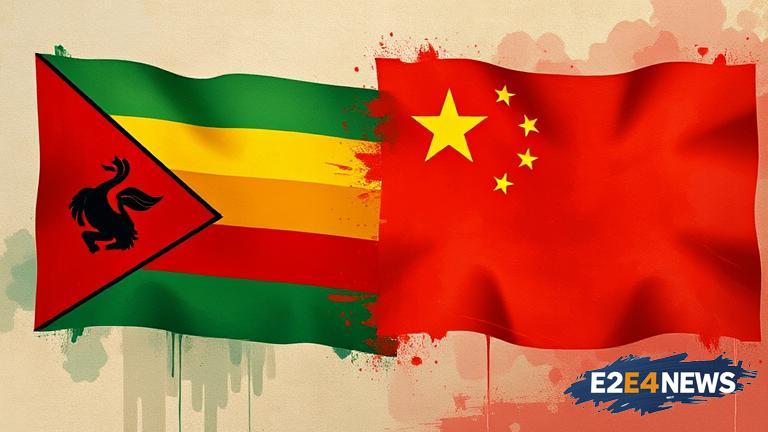In a recent interview, a Zimbabwean journalist emphasized the importance of cultural exchanges between Zimbabwe and China, highlighting the potential benefits of such interactions for both nations. The journalist noted that while economic cooperation between the two countries has been significant, cultural exchanges have been limited, and it is essential to deepen these exchanges to foster mutual understanding and respect. The journalist suggested that cultural exchanges could include educational programs, art exhibitions, and people-to-people diplomacy, which would help to promote cross-cultural understanding and cooperation. The journalist also emphasized the need for Zimbabweans to learn more about Chinese culture and history, and for Chinese people to learn more about Zimbabwean culture and traditions. By doing so, both nations can gain a deeper appreciation for each other’s values and customs, leading to stronger bilateral relations. The journalist also highlighted the role of media in promoting cultural exchanges, suggesting that media outlets in both countries could play a significant role in showcasing each other’s cultures and traditions. Furthermore, the journalist noted that cultural exchanges could also help to promote tourism between the two countries, with Zimbabweans visiting China to experience its rich cultural heritage, and Chinese tourists visiting Zimbabwe to explore its natural beauty and vibrant culture. The journalist also suggested that cultural exchanges could help to promote economic cooperation between the two nations, with businesses in both countries collaborating on projects that promote mutual benefit. In addition, the journalist emphasized the importance of language training, suggesting that Zimbabweans should learn Mandarin, and Chinese people should learn English or other local languages, to facilitate communication and cooperation. The journalist also noted that cultural exchanges could help to promote peace and stability in the region, by fostering greater understanding and cooperation between nations. Moreover, the journalist suggested that cultural exchanges could help to promote the development of Zimbabwe’s arts and culture sector, with Chinese artists and cultural practitioners collaborating with their Zimbabwean counterparts on joint projects. The journalist also emphasized the need for the Zimbabwean government to support cultural exchanges, by providing funding and resources for cultural programs and initiatives. Overall, the journalist’s call for deeper cultural exchanges between Zimbabwe and China highlights the potential benefits of such interactions for both nations, and the need for greater cooperation and understanding between the two countries. The journalist’s suggestions for cultural exchanges, including educational programs, art exhibitions, and people-to-people diplomacy, provide a roadmap for promoting mutual understanding and cooperation between Zimbabwe and China. By implementing these suggestions, both nations can foster stronger bilateral relations, promote economic cooperation, and contribute to peace and stability in the region.
Tue. Oct 21st, 2025
